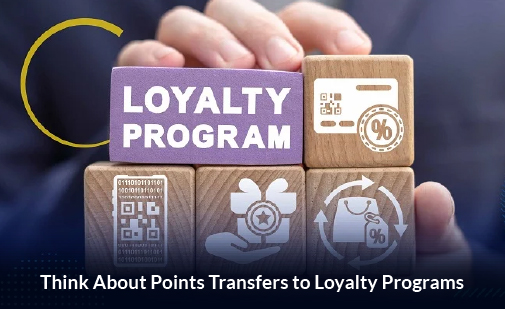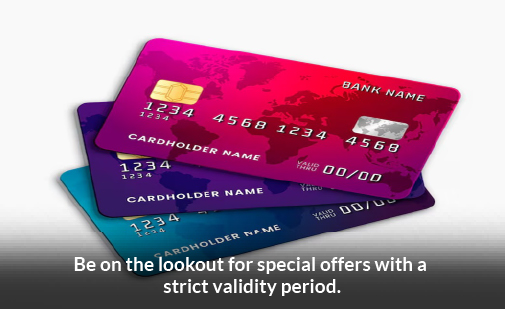Juggling these two elements often leads to unwanted currency expenditure; however, with the right knowledge, journeys can become much less costly from a financial viewpoint. One such approach seasoned specialists swear by is spending credit card points. Taking a flight to attend a conference several states away or even internationally to meet a potential client tends to carry a hefty price tag. If planned properly with rewards programs, these costs can be turned into benefits.
With the right strategy, the rewards from credit cards that are often viewed as ancillary can, in fact, substantially offset expenses for traveling, accommodation, upgrades, surface transportation, and with further rewards in surplus for subsequent trips. Yes, business travel just got a lot more rewarding.
This business strategy guide intends to advise travelers on the most efficient routes to spend their points and select optimal cards alongside maximizing redemptions that come with further credits, thus outlining the best possible strategy for saving. Be you're a novice for frequent flyers or a first-time points user, these pointers are bound to help a wide array of cardholders.
Select the Correct Credit Card

Not every credit card is created the same, particularly when it comes to travel benefits. If traveling for business is a frequent occurrence, it’s important to choose a card that has a high rewards rate for flights, hotels, and other business purchases. A number of business charge cards offer freebies such as sign-on bonuses, admission to an airline lounge, and even complimentary upgrades. If you’re sponsored by certain companies, their affiliated credit cards may be of greater use, but more flexible charge cards allow point transfers to various travel partners.
Optimize Your Spending Habits

Cardholders often achieve greater rewards based on their spending. However, how a consumer spends their money, optimizing for maximum earning potential, matters. Making purchases with self-charging cards first tends to maximize value. Office expenses should be recurring, like subscriptions for software, cloud-based digital advertising, and meals while traveling for business would also add value. Some cards even grant additional points based on quarterly spending activity. Furthermore, if employee travel is covered by a company, charging those meals on self-sponsored charge cards will speed up points accumulation.
Redeem Strategically for Flights

Airfare is arguably one of the most valuable uses of your points. But not all redemptions offer the same value. If you have flexible travel dates or don’t mind traveling during the off-season, points can stretch much further. It's important to check for sweet spots in award charts and transfer your points to partner airlines where redemption rates might be lower. Many loyalty programs also offer off-peak travel discounts, which, combined with member discounts, drastically cut the cost of tickets.
Another tip? When prices are particularly high in one direction, consider booking one-way tickets using points. This gives you more flexibility when combining cash and points.
Don’t overlook hotel stays.

Aside from airfare, hotels are often overlooked, but they carry significant value. Many credit card reward programs have partnerships with hotel chains that let travelers book free nights or enjoy complimentary room upgrades. Some hotel programs offer a free fifth night when booking four nights with points. For those who frequently travel to the same cities, brand loyalty unlocks elite status perks like early check-in, free breakfast, or late checkout—all using your points.
Certain cards grant complimentary anniversary nights or cashback bonuses for hotels booked via their portals.
Travel Rewards

Wishing to travel in business class while still paying economy class prices? Flying long distances on economy and wish to upgrade to business? Points can assist. Credit card reward points can be used to improve the quality of your trips, whether it be upgrading to a better seat on a long-haul flight or a room with a view in a hotel. Some cards allow you to bid for upgrades through points or grant you exclusive perks such as lounge access, priority boarding, and even meals served during the flight.
That not only ensures a higher level of comfort during your travels but also allows you to present a polished and professional image when arriving at your meetings well-rested and ready to go.
Reward Programs

Some credit cards work with reward programs for frequent travelers, allowing accumulate points with cash to increase spending flexibility.
Through this method, business owners can more effectively manage their finances while providing themselves with scale when it comes to reward point distribution.
Monitoring Points and Expiry Dates

Achieving any way to accumulate rewards points is useful, however, many issuers place restrictions on their usage, such as a time limit or a shelf life. As a result, reward policies and payment plans should be constantly checked. Using various trackers and even consolidating programs can serve to monitor issued rewards and prevent delayed garnishments. Enhanced organization means prompt garnishment, which facilitates advanced trip planning.
Think About Points Transfers to Loyalty Programs

Points allocated to a credit card can often be more valuable when moved to an airline or hotel loyalty program. Transferring Amex Membership Rewards to Delta SkyMiles or even Marriott Bonvoy tends to yield better redemption values than booking through credit card portals. However, ensure ample research is conducted regarding transfer ratios and policies before making moves.
This strategy is useful for travelers with a strong understanding of loyalty programs and a willingness to compare redemption values across multiple programs.
Be on the lookout for special offers with a strict validity period.

During the course of a year, credit cards and some other travel companies have special offers that provide additional value in redemption programs as a result of transfer bonuses, discounted redemption flights for a limited duration, or by awarding additional points for certain expenditures for a limited period of time. To harness these offers, one simply needs to register for the credit card issuer’s newsletter or keep tabs on their app to guide you. These offers are advantageous as they increase the value of your points by 20 to 40 percent.
Try to schedule business trips on the dates with availability of rewards for better efficiency.
For those with flexible schedules, explore traveling on dates aligned with the issuance of reward points. Study the reward charts as well as the reward calendars for the best value. This not only optimizes distance traveled but maximizes the use of funds and points. If the trip’s travel timeline is fixed, setting alarms and monitoring reward point systems is the best option these days.
Some travel portals allow you to set “reservations” at a predetermined price for your points, which can be unlocked during the final confirmation period before execution, enabling advantageous last-minute swaps.
Maximize Perks Beyond Points

Traveling for business or pleasure utilizes the same perks of the credit card. Travel insurance, insurance for rental cars, reimbursement of lost luggage, and purchase protection are added benefits of credit cards that save money and time. Some credit cards come with a personal assistant service that helps the traveler book restaurants and hotels. This improves the flow of the business trip.
When used appropriately, these services offer great value monetarily as well as an enhanced travel experience at no additional fee.
Final Thoughts
Credit points, if used wisely, can transform tedious business travels into an opportunity to earn amazing perks. The best rewards, such as complimentary flights, stays at 5-star hotels, insurance for the seats booked, and many more, are ready to be claimed, as long as the user is strategic. The choice of the credit card, spending practices, and travel objectives should be synced, so every business trip is an opportunity to earn, save, and plan smarter.
So next time a worker deals with a credit card payment for a flight, has dinner, or takes a cab, it should be kept in mind that they are not utilizing money but investing in a future business venture.
Strategic use of credit card points entitles the employee to generous reimbursements for travels undertaken for business purposes.






